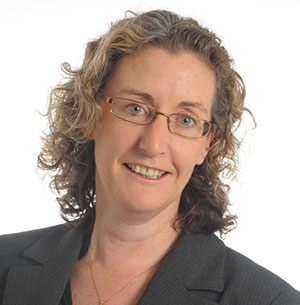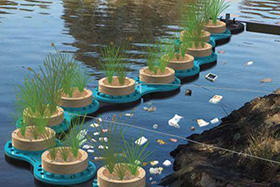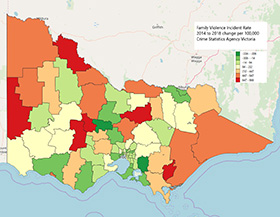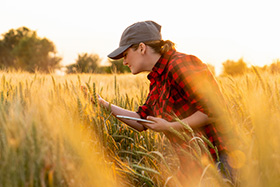
CeRDI Newsletter Autumn 2019
In this issue:
- Message from the Director
- Data Democracy film launch
- Emergency Management Victoria: My Community Portal
- Digital Health in Ballarat inaugural open mic night
- LitterWatch Victoria
- National Waterbug Blitz
- Whale sightings and photo identification
- CeRDI science engagement with Ballarat U3A
- Central Highlands Family Violence Data Press project
- CeRDI researcher authoring blog for Historic Urban Landscapes Ballarat
- Agricultural Research Federation (AgReFed)
- Smart Cities and Suburbs Ballarat
- Postgraduate scholarships
- Staff Profile: Helen Hunter
- Student profile: Elissa Ashton-Smith
- CeRDI news snippets:
- CeRDI postgraduate news
- About CeRDI
- Contact CeRDI
Message from the Director
 |
|
|
Associate Professor |
|
We have a strong mandate at Federation University to conduct research that makes a difference, and provides the impetus for positive change through advances in knowledge.
The stories in this issue of the newsletter demonstrate the difference that CeRDI is making in our core research areas and with our partners, with industry and across communities. The longitudinal nature of CeRDI research is generated through initial project stages, often providing the foundations for more informed decision making and planning over future years. CeRDI research is making a difference in a range of important and diverse areas from conservation to emergency management, digital health to agriculture.
CeRDI staff are very active in sharing the learnings from the research they are involved with. It is exciting to reflect on how findings are being shared and the extensive reach that CeRDI staff are achieving through local, national and international conferences and forums, and through webinars and journal publications. This highlights the contributions of CeRDI, which are of regional, national and international importance.
Finally, there have been two new PhD scholarships advertised with CeRDI. Candidates are being sought to conduct research in agriculture, and in soils. The industry partnerships associated with both these scholarships ensures close application to agriculture and farming with the opportunity for exciting research and learning opportunities. While the agriculture scholarship has now been filled we are still seeking a quality candidate for the soils research. If you interested or know someone who might be, please forward this newsletter on, or contact me for further information.
Associate Professor Helen Thompson
Director, CeRDI
June 2019
Data Democracy film launch
.png) |
|
|
Data Democracy film launch |
|
CeRDI has collaborated with documentary film makers Wind & Sky Productions to commission a new film about Data Democracy. Data Democracy was officially launched during an engaging panel session held in early April at the Frontier SI Conference at the Melbourne Convention and Exhibition Centre.
The Data Democracy film examines the current debate about the accumulation, federation and aggregation of public and private data associated with society’s rapid growth of electronic data. The documentary includes an overview of the current management of data ensuring fairness consistent with honouring individual rights. The film features leading experts Paul Box (CSIRO), Associate Professor Peter Dahlhaus (CeRDI), George Fong (ex-Internet Australia), Professor Richard Sinnott (University of Melbourne) and Dr Gillian Sparkes (Victorian Commissioner for Environmental Sustainability), who offer informed and insightful discussion about the issues pertaining to fairness, access, sharing and communicating data in the technological era.
Emergency Management Victoria: My Community Portal
.jpg) |
|
|
Emergency Management Victoria: |
|
CeRDI is collaborating with Emergency Management Victoria (EMV) to support Community Based Emergency Management (CBEM) through the development of the My Community Portal, which was launched in March 2019.
A community-based approach to emergency management (EMV 2016) was introduced in 2016 to support people to build safer and more resilient communities. This approach relies on community expertise and local knowledge to enhance local decision making. A key strategy is to support communities in producing localised, reliable and up to date information.
Over the past 12 months, CeRDI has been involved with developing the interactive platform to support individuals and communities to upload and share location based information, including via a web map, and access data, to improve their preparedness for emergencies.
Digital Health in Ballarat inaugural open mic night
.jpg) |
|
|
Digital Health in Ballarat |
|
World class digital research can enhance Ballarat health care with the growth of a digital health research ecosystem linking universities, health care providers, start-ups and the community. The inaugural open mic night, was launched by Federation University with support from Ballarat Innovation and Research Collaboration for Health, Ballarat Health Services and the Digital Health CRC (DHCRC).
CeRDI organised the event, held at the Stables of Ballarat’s iconic Pub with Two Names. The open mic night will provide a regular forum for strengthening and expanding on digital health networks across the region, providing scope for collaborative projects as well as a platform for new ideas and discussion of digital health needs for the sector.
The launch of the open mic night attracted a diverse audience who listened to presentations from four local speakers innovating in digital health.
LitterWatch Victoria
 |
|
CeRDI has commenced work on a project with the Department of Environment, Land, Water and Planning (DELWP) to conduct research into, and develop, a standardised litter monitoring database and online spatial information system for Port Phillip Bay. This project, called LitterWatch Victoria, will bring together existing community and agency litter monitoring data to help develop new approaches that will ultimately guide beach litter control policy and planning for the Port Phillip region.
Nationally and within the state of Victoria, litter in coastal and marine environments has become a key threat. Litter pollution data has been collected in Victoria by a variety of community groups, but there has not been a consistent approach to monitoring and measurement activities to ascertain changes in litter on beaches around the Bay. Furthermore, data that is available is difficult to access and report upon, especially for members of the public.
National Waterbug Blitz
.png) |
|
|
The National Waterbug Blitz website |
|
The National Waterbug Blitz website is a hub for communicating information about the annual, national waterways monitoring event. Commencing in spring 2018, the monitoring event involves citizen scientists collecting data about the health of Australia’s waterways and wetlands.
In April, National Waterbug Blitz partners - collaborating on Australia’s first nationwide waterway monitoring event - launched the Waterbug Data Portal which provides public access to federated data from across Australia, including both state government waterbug monitoring and community monitoring such as Waterwatch.
The Waterbug Data Portal enables the mapping and interrogation of data from water catchments. As community assessments from different regions grow with each monitoring event, the data collected by citizen scientists will complement agency data, providing insights about the health of Australia’s river, lakes and wetlands. This will assist authorities with waterways management and support. This data also provides the wider community with information about their local water catchments to identify the health of these sites.
Whale sightings and photo identification
.jpg) |
|
|
Whale sightings and photo identification |
|
CeRDI has worked with the Department of Environment, Land, Water and Planning (DELWP) and the Arthur Rylah Institute to develop a new citizen science web portal for the State Wide Integrated Flora and Fauna Teams (SWIFFT) website. The portal has been created to support the Southern Right Whale research and photo identification program being undertaken by DELWP in Victoria.
Launched in April, the easy to use online interface with image uploading functionality supports community contribution of Southern Right Whale (and other whale species) sightings and photos off Victoria’s coast. Monitoring and recording of the whales is a vital activity in supporting and protecting this critically endangered species. Capturing photos and sightings of whales by citizens, and uploading these to the web portal, enables individual whales to be identified and catalogued by DELWP researchers. Each whale has a unique pattern of white features (callosities) on their head that can be used to identify individual whales.
CeRDI science engagement with Ballarat U3A
.jpg) |
|
|
CeRDI research officer Derek Walters |
|
CeRDI research officer Derek Walters recently gave a presentation to the Ballarat branch of the University of the Third Age (U3A). Entitled ‘Why is the Sea Salty?’ Derek’s presentation included scientific insights about current issues related to groundwater, including climate change, water storage, and desalination.
U3A is an international volunteer organisation that aims to provide education and stimulation to mainly retired members of the local community. The Ballarat branch of U3A has over 1000 members, with nearly 40 people enrolled in the science class that Derek presented to.
During his presentation, Derek discussed some of the research being conducted at CeRDI specifically in the natural resources area. This included the many citizen science projects CeRDI has collaborated on, including Waterwatch and EstuaryWatch andthe Natural Resource Management Planning Portal for Corangamite Catchment Management Authority. Derek also talked at length about the Visualising Victoria’s Groundwater project. The Latham’s Snipe project was also highly regarded, with the audience displaying considerable interest and fascination in this project and the ecology of this migratory bird.
Central Highlands Family Violence Data Press project
 |
|
|
Famly violence incident change 2014 to 2018 |
|
CeRDI is working with service providers from across the Central Highlands region to develop a regional family violence spatial portal. The Data Press project is a collaboration between the Central Highlands Integrated Family Violence Committee (CHIFVC), Ballarat Health Services and Federation University and aims to improve access to relevant data on family violence from across the local region.
A key outcome associated with this project is the development of a spatial data portal that will federate local data and public health data to provide a comprehensive repository about family violence in the local community. The spatial portal will map sector data and provide community profiles based upon service needs, causality and impacts of family violence. It is anticipated that the portal will assist with improving operational and strategic decision-making through the availability of data. This is the first time such an initiative has been undertaken in Victoria.
CeRDI researcher authoring blog for Historic Urban Landscapes Ballarat
.jpg) |
|
|
Historic Urban Landscapes Ballarat |
|
CeRDI Research Officer, Helen Hunter, is contributing as an author of the local history blog for Historic Urban Landscape (HUL) Ballarat. With tertiary qualifications in history and in museums studies, Helen’s interests in local history will be shared with a new audience as she moderates and prepares content for the blog.
Helen recently wrote and published her first HUL blog article entitled ‘Ballarat’s response to Darwin’s Evolution Theory’ the blog examines the local reaction to the release of Darwin’s evolution theory in the second half of the 1800s. The article provides historical accounts from the time and highlights some of the reactions of Ballarat’s religious leaders. The blog offers fresh insights into local responses to events occurring on the world stage and how demonstration, discussion and debate were actively pursued in the Ballarat of 150 years ago.
Agricultural Research Federation (AgReFed)
 |
|
|
Agricultural Research Federation (AgReFed) |
|
Advances in farm technology have led to an increased collection of data by growers, agronomists, researchers and industry, with the potential to conduct advanced analysis techniques for better prediction. However, these data are not always findable, accessible or interoperable, and therefore not able to be easily integrated and reused. These four key features of data (findable, accessible, interoperable and reusable) are becoming increasingly necessary and data that fulfils these requirements is described as being ‘FAIR’. Data that is not FAIR leads to loss of time in data cleaning and manipulation, or, in worst case scenarios, poor science outcomes due to relevant data being ignored because it is inaccessible.
The Agricultural Research Federation (AgReFed) aims to improve the sharing and reuse of agricultural data. Initiated and funded by National Collaborative Research Infrastructure Strategy (NCIS) through the Australian Research Data Commons (ARDC) with participation and co-investment from six partner organizations including Federation University’s CeRDI (lead organisation), CSIRO, The University of Western Australia/Department of Primary Industries and Regional Development WA, University of New England, and the University of Adelaide.
Smart Cities and Suburbs Ballarat
 |
|
Federation University and the City of Ballarat have collaborated on a successful funding application to the Department of Industry, Innovation and Science through the Smart Cities and Suburbs Program. The Ballarat is Open project will digitally enable Lake Wendouree and Ballarat’s creative district and surrounds using the internet of things (IoT), communications technologies and data sharing models for smart places, smart environment and smart industries.
The project activities and outcomes will include an IoT Network at Lake Wendouree, Federation University and Ballarat’s creative district, develop a City Data Model and data platform to effectively publish, access and share data.
CeRDI will lead the development of the City Data Platform, with activities enabling effective data management publishing, access and sharing. CeRDI will also contribute to open data access, visualisation and analytics for evidence-based decision-making and community engagement.
For more information about this project contact Assoc Prof Helen Thompson. Email: h.thompson@federation.edu.au
Postgraduate scholarships
.png) |
|
|
Industry-Funded soil Science PhD opportunity |
|
CeRDI is recruiting two additional higher research degree students for co-funded industry PhD scholarships:
Soil science PhD opportunity
Federation University PhD Scholarship – Southern Farming Systems: Lime Soil Acidity
Soil acidity is recognised as one of the major soil constraints to increased agricultural productivity in Australia. Lime is a key amendment to address the decline in soil pH. Lime is an expensive input for mixed and cropping farming systems, and its quality can be highly variable. Farmers need to be able to make informed decisions about the quality and cost-effectiveness of lime they purchase. There is also a need for the lime and fertiliser industries to have a reliable methodology to accurately compare different lime types. This project will explore and develop novel approaches to advance understanding of lime type, quality, variability and spreadability on performance for agricultural purposes under current farming systems and practices.
Staff Profile: Helen Hunter
.jpg) |
|
|
Helen Hunter |
|
Helen Hunter joined the CeRDI team in 2018 as a Research Officer with expertise in history. Having completed a Bachelor of Arts (History) at the University of Melbourne, Helen completed a public history internship with Sovereign Hill Museums Association before heading back to study and completing a Graduate Diploma of Museums Studies at Deakin University.
Prior to commencing work in CeRDI Helen was employed predominantly in the not-for-profit sector and in tertiary research centres. She has extensive experience in project support, management, and coordination as well as in conference and events management. Helen previously filled the role of editorial assistant on a Federation University history journal.
Helen is passionate about public heritage interpretation, social welfare and public health and works across the heritage and health and wellbeing research areas in CeRDI. Helen has provided extensive assistance to Federation University’s involvement in the Digital Health Collaborative Research Centres (www.cerdi.edu.au/cb_pages/digital_health.php) and is involved in ‘all things historical’ at CeRDI including as author for Historic Urban Landscapes Ballarat blog (www.hulballarat.org.au).
Student profile: Elissa Ashton-Smith
 |
|
|
Elissa Ashton-Smith |
|
Elissa commenced her PhD with CeRDI in February 2019. Prior to this, she was working in the Natural Resource Management sector as a Landcare Facilitator. Elissa's PhD is co-funded by Barwon Coast Committee of Management. The PhD will explore the impacts on coastal communities and ecosystems from increased urbanisation, population change and seasonal variation. The research will build upon work that CeRDI completed for Barwon Coast investigating the attitudes, knowledge, and behaviours of the general community in relation to coastal management, including dog control and beach use around Barwon Heads and Ocean Grove.
Elissa's PhD research is aimed at generating deeper insights into perceptions of nature and the values and worldviews that influence the way people interact with the natural coastal environment.
For her Honours thesis, Elissa focussed on popular concepts of nature through a poststructuralist analysis of David Attenborough's Private Life of Plants series.
Originally from Melbourne, Elissa moved to the Bellarine Peninsula in the early 2000s to the 'Sea Change' town of Barwon Heads, and developed an interest in coastal and marine management, and community activism
Elissa is supervised by CeRDI Drs Angela Murphy and Birgita Hansen. Elissa is currently working to build links with coastal communities and organisations with the goal of finalising her research plan and working towards confirmation of candidature.
To contact Elissa, email: elissaashtonsmith@students.federation.edu.au
CeRDI news snippets:
CeRDI Staff Updates: CeRDI welcomes new staff member Dr Nimesha Fernando. Nimesha has joined CeRDI as a Research Fellow and is working within the agriculture theme. Her current research focus is weed competition with crop species under changing climate conditions and aquatic invasive plant species management.
We also welcome back Jude Channon and Dr Angela Neyland. Jude is providing administrative and research support across a range of CeRDI projects, but especially Online Farm Trials. Angela is working with the natural environment research team on projects including Visualising Victoria's Biodiversity, SWIFFT and the Port Phillip Bay Litter Data Collection and Monitoring project.
‘Unpacking interoperability’ webinar: CeRDI Research Associate Bruce Simons was a recent guest speaker for a webinar facilitated by the Australian Research Data Commons. The webinar examined interoperability and the implementation of FAIR data practices. The webinar is available to view at: www.youtube.com/watch?v=VkCLeyVY5rE&feature=youtu.be
 |
|
|
Associate Professor |
Sport and Recreation Spatial Sport Participation Research Project wins award: The Sport and Recreation Spatial-Sport Participation Research Project won the 2019 Parks and Leisure (Vic/Tas) research award at the May state conference. The team of Associate Professor Rochelle Eime, Dr Jack Harvey, and Melanie Charity are now finalists for the national research award to be presented in Perth in October. Rochelle attended the conference and was presented the award from Grant Greenway from etp- Turf. The Research project is in partnership with Victoria University. The Sport and Recreation Spatial research team also won this State award and also the National award in 2017.
CeRDI postgraduate news
New HDR student: Welcome to new PhD student Dr Basharat Ali, who commenced his studies in April 2019. Basharat has an extensive academic and industry track record that has been established here in Australia and Malaysia. We will profile Basharat’s research and industry partner Precision Agriculture in an upcoming issue of the newsletter.
About CeRDI
The Centre for eResearch and Digital Innovation (CeRDI) is a research centre at Federation University focused on:
- the application of information and communications technology (ICT) and the development of innovative, world class knowledge management systems;
- significantly advancing the digital literacy and knowledge management capabilities of partner organisations;
- fostering partnerships for the development and implementation of eResearch with industry, government and academia; and
- measuring the impact of eResearch and digital innovation through longitudinal research.
Contact CeRDI
For further details about CeRDI’s diverse portfolio of research please visit our website: www.cerdi.edu.au, or contact Director, Associate Professor Helen Thompson: h.thompson@federation.edu.au
Mailing Address
Centre for eResearch and Digital Innovation
Federation University
PO Box 691
Ballarat Vic 3353
Office Location
Suite 15, Greenhill Enterprise Centre
Ballarat Technology Park
University Drive
Mount Helen Vic 3350
Phone: +61 3 5327 9314
Email: support@cerdi.edu.au
Subscribe to the CeRDI Newsletter Mailing List
I would like to subscribe to the CeRDI Newsletter Mailing List to receive notifications of future CeRDI Newsletters.
If you have any feedback, please email newsletter@cerdi.edu.au

.png)
.jpg)
.jpg)
.png)
.jpg)
.jpg)
.jpg)